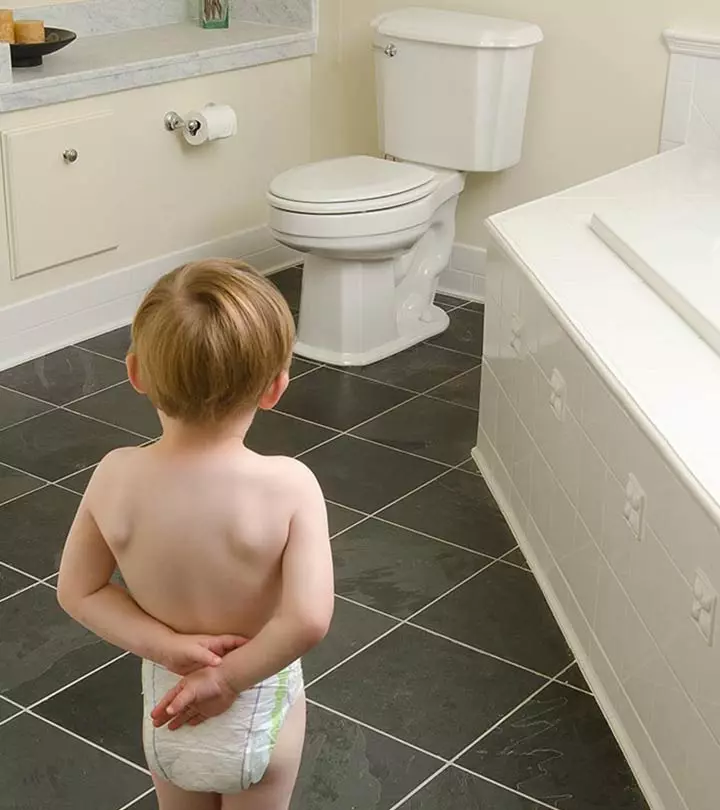

Image: Shutterstock
The second that your little one arrives into the world, your entire focus shifts towards his/her well-being. Perhaps, that is why various concerns related to his/her health might cross your mind now and then. One such worry happens if you notice excessive gas in your baby. But, at times, those concerns can also be unfounded. So, here we will discuss this topic in detail so as to help you have a better understanding of it.

Babies usually experience excessive gas due to air swallowing that happens during feeding. This gas usually does not happen because of any issue with the milk. And, in fact, you can prevent even the most excessive gas by burping your little one effectively (1).
How Can You Burp Your Infant?
Image: Shutterstock
Try to steer away from burping your little one when he/she is completely engrossed in feeding. This might upset your baby, making him/her cry. This can, in fact, result in him/her swallowing even more air than earlier. So, pick a time when he/she is taking a break or has slowed down slightly (2). This way, you will get to burp your little one without hampering his/her mood.
Then, adopt a burping position that your infant is going to be the most comfortable in. There are more or less three positions in which you can place your little one before burping him/her. Firstly, you can place him/her over your shoulder. Secondly, you can make your baby sit on your lap, with him/her either facing outwards or sideways. And, thirdly, you can make him/her lie down on your lap facing downwards (3).
Once you and your baby have adopted one of the three aforementioned positions, you can gently pat and massage his/her back. This action will help provide some ease and comfort to your little one.
For bottle feeding, you will have to avoid air swallowing in a slightly different manner. Just ensure that the air is present in the bottle portion of the bottle. As long as the air is not towards the nipple area, you might be able to make sure that your little one does not swallow the air (4).
If Your Little One Experiences Gas Persistently
Image: Shutterstock
Though this happens rarely, a persistent gas might indicate that there is a mild digestive issue. If you feel so, you can do the following (5):
- If you are breastfeeding your baby, you should be avoiding certain foods like milk products from cow
- After consulting with your doctor, you can perhaps give your baby some prescribed antigas medicine. But, you should know that its effectiveness has yet not been proven
- You can try to massage your infant in between the meals:
- Place your baby on your lap in such a way that he/she is facing you
- Then, you can move his/her legs in a sort of bicycle motion
- You can also rub some warm oil on your infant’s tummy and give him/her a gentle massage
- If you are feeding formula to your baby, you can consult your doctor about making some changes to it
When Should You Worry?
Image: Shutterstock
The silver lining is that most of these gas issues resolve on its own over some time. But, if you notice the irritability to be persistent and severe, the problem might be something else altogether. Additionally, if your child is not meeting all the developmental milestones, it might indicate a significant digestive issue. So, if you notice any of these, consult your doctor immediately (6).
Now that you know everything about gas in babies, we hope to have put you at ease. You now know what to look for and what constitutes as normal. So, stop stressing and enjoy your motherhood. Good luck, ladies!
Community Experiences
Join the conversation and become a part of our nurturing community! Share your stories, experiences, and insights to connect with fellow parents.















